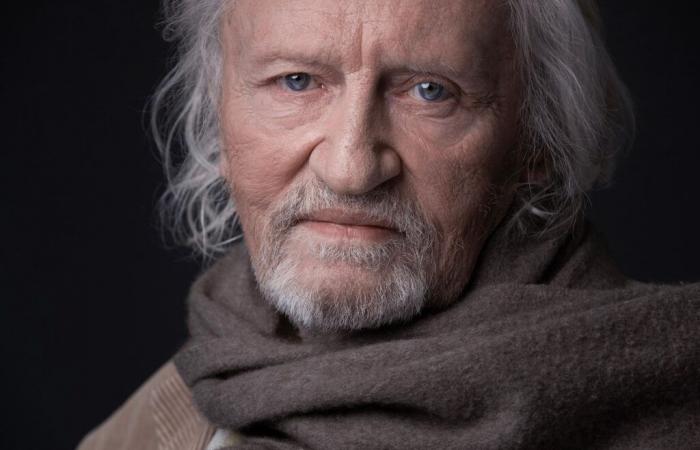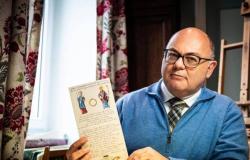Died this Sunday at the age of 75, the French actor Niels Arestrup participated in our special series dedicated to Marlon Brando, whom he deeply admired.
Paris Match: What was your first shock with Brando. To the point of wanting to meet him years later?
The rest after this ad
Niels Arestrup: On TV, in “A Streetcar Named Desire”, at the very beginning of the 60s. I was 11 years old. It was like a force of nature, something I had never imagined, never seen. At the time, I wasn't really into acting yet. But I was very struck by this vitality which radiated from the screen. As exceptional and present as that of a wild animal. That impressed me a lot.
The rest after this ad
So this first impression became a sort of fascination as you grew up?
The rest after this ad
The rest after this ad
It wasn't a fixation, but little by little, I discovered other films with Marlon Brando, always finding this same flame, this same intensity, with an apparent relaxation. What we simply call “presence”, which radiated even on an old black and white screen from the 60s. When the acting bug began to inhabit me, I watched his performance, his movements , his detached air with much more interest obviously.
What made you want to meet him when he was filming “Last Tango in Paris” in 1972?
I was a young Parisian who was starting to dream of becoming an actor. And I learned by chance, in a magazine, that Brando was filming in Paris. There was the address of the production. I called but no one answered. I knew that the studios were in Boulogne. So one afternoon I went to see. We didn't get in easily. I took advantage of a moment of inattention to sneak away. A lady, probably a secretary, was in an office. In broken English tinged with a strong American accent, I made him believe that I was a friend of Marlon's who wanted to see him while he was in Paris. A little worried, not wanting to take any risks, she told me that he was filming his last scene on rue Vavin that day, until 6 p.m.
So I went there. I spotted the caravans, the production people. At 6 p.m. sharp, the security cordon was removed and Marlon Brando came out, leaning on two young women, probably makeup artists and dressers. He had fake blood on his shirt because he had just shot the scene where his character dies. He crossed the street and our eyes met for a few seconds. No sign of particular interest but no aggressiveness either, just a vague smile. He got into his trailer. Half an hour later, he came out, changed, his hair turned gray again. He got into a car, heading towards his hotel. I stood there frozen, stunned to have been able to see him so close.
Weren't you tempted to go talk to him?
No, I didn't want to bother him, to act like a clingy fan. We exchanged that look, that was enough for me, I was happy with that.
“My great joy was going to see the lions in cages”
Many say there is a before and after Brando in acting. Can you explain how his way of playing was unique, modern, and influenced everyone who followed?
It's difficult to define. A very strong intensity, like a light that radiates, without it doing anything in particular. It's just there, it doesn't move. A presence as magnetic as that of a wild animal. Something mysterious that many have written about without finding an explanation. An ability to fill the present moment in an indefinable way. Some have it in them, like a gift. Brando combined raw power and detachment with a disarming naturalness.
When I was a child, my father often took me to the Vincennes zoo. My great joy was going to see the lions in cages. Even when they were doing nothing, sleeping or yawning, there was this animal magnetism. It's the same feeling I had when I discovered Brando on screen. This raw, instinctive, indefinable presence.
Many articles have sometimes compared you to Brando. Did you consciously or not try to get closer to his playing sensibility?
I hope not. Maybe I missed things, under the influence. But I understood that his secret was to be totally himself, while being completely inhabited by his characters. It seems simple but it's inaccessible. You would have to have had your life, its joys, its dramas to know how to do it naturally like him. Those who would like to imitate him would have understood nothing and would make fools of themselves.
I'm flattered if people think I have some form of presence, but I'm incapable of defining it. I followed my own path with sincerity and work, without trying to copy anyone, and especially not Brando!
“He felt tired”
From Last Tango, and apart from “Appocalypse Now”, the profession of actor seemed to no longer really interest him and he made films without much interest, mainly for financial reasons. How do you explain it?
I think he felt a certain disappointment, a weariness, like someone who has reached the top and for whom the only way out is to go back down. He had undoubtedly reached the peak of his art in “A Streetcar Named Desire” and no longer saw the point in taking on new challenges. He had achieved the perfect and inaccessible alchemy for an actor, between authenticity and acting. But once you have achieved this feat, what else can you do? It's like you've reached the top of Everest. We then offer you short walks in the mountains, obviously that interests you less.
He withdrew, lived on his island, distancing himself from cinema, only filming for money. His immense talent had undoubtedly become a burden to him. He was also in reaction against the fascination he aroused. Deep down, he knew there was no secret, just this inexplicable gift he had within him.
If you could have met him later, would you have wanted to?
I wouldn't have refused to talk to him if he had offered it to me. But I didn't have the mind to bother him at all. I made my own way, in all modesty. Brando had a talent so singular that it is almost inexplicable. No one ever wanted to make a fool of themselves by reprising one of their roles. It would be suicidal. There was something unique, unforgettable, powerful about him. You would have to be crazy to want to imitate him.
Can we say that he was an actor apart, above all the others?
What is being an actor, what is the goal? There are multiple answers. Many actors have done impressive, unforgettable things, whether in the cinema or in the theater. But Brando had that little something extra that we can only admire without explaining it. His presence on screen remains unique.






